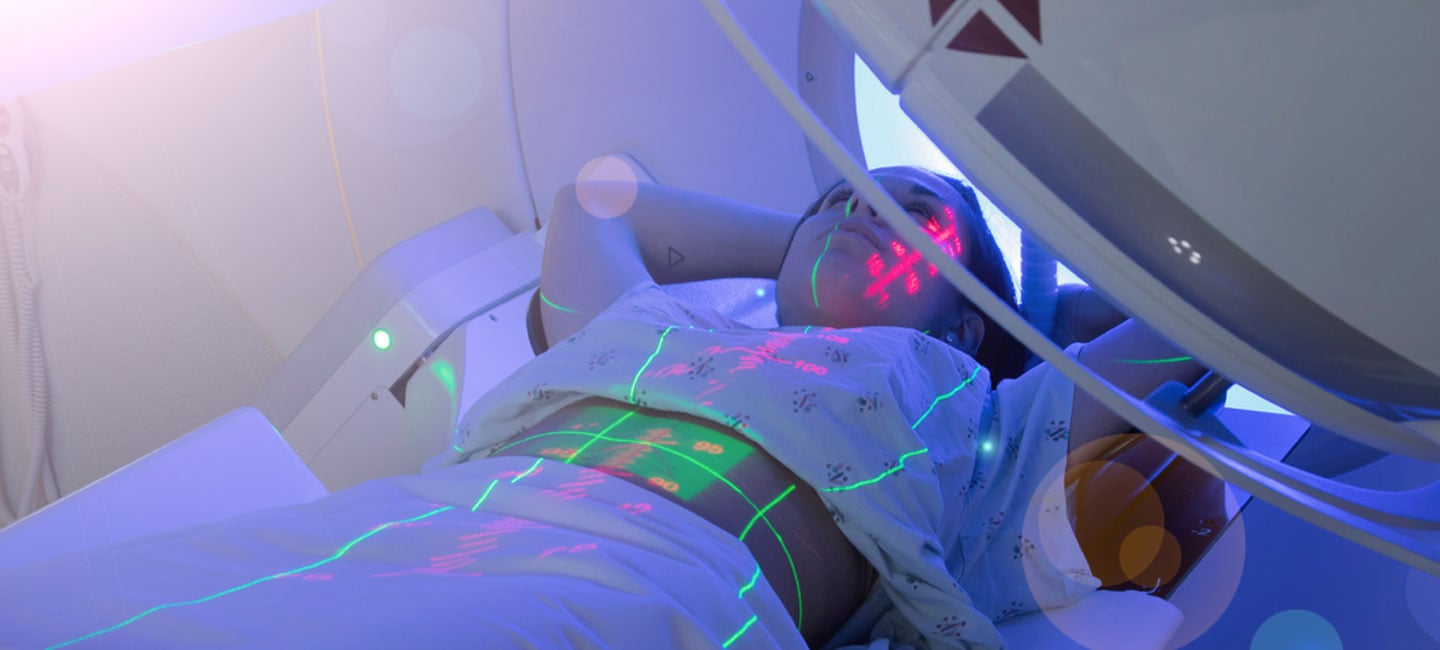Looking at Guided Radiation for Triple-Negative Breast Cancer
Determining the exact amount of radiation therapy necessary to treat patients with triple-negative breast cancer could lead to better outcomes and better quality of life.
That’s based on a study presented at the San Antonio Breast Cancer Symposium by Dr. Kamran Ahmed, a radiation oncologist in the Department of Radiation Oncology at Moffitt Cancer Center.
“This study is the first test we have to personalize the dose of radiation therapy necessary for a patient’s specific tumor,” Ahmed said. “In this study, all patients will have tissue that is collected either at the time of their biopsy or their lumpectomy, and that tissue determines their unique radiation sensitivity score.”

The score is the result of the radiosensitivity index (RSI) developed at Moffitt over the past two decades.
Radiation therapy has too long been a “one size fits all” approach to treatment, Ahmed said. With this study, radiation can be personalized based on each individual patient’s needs and optimized to improve treatment overall.
“From an individual patient standpoint, this test will tell us how sensitive each unique tumor is to radiation therapy and will guide the discussion to better determine the dose,” Ahmed said. “We have a lot of retrospective evidence in breast cancer telling us this works. Now, if a patient decides to enroll in this study, we can have a more informed decision about what dose of therapy they should receive.”
This study is specifically for patients with triple-negative breast cancer who have undergone a lumpectomy. Radiation therapy uses protons or electrons to kill microscopic tumor cells that are in the area and have a high risk of harboring cancer cells. Thus far there hasn’t been a tailored test for these patients, and they have received the same or similar doses of radiation.
“We’ve been validating and studying this for the past 20 years at Moffitt and it’s exciting that it will finally impact patient care,” Ahmed said.
The study is now open and actively recruiting triple-negative breast cancer patients. More information is available on Moffitt’s clinical trials and studies page and Ahmed encourages patients who fit the profile to participate.
“This study is open at Moffitt and at our partner site at Morton Plant Hospital in Clearwater,” Ahmed said. “This is an opportunity to personalize the therapy patients get based on their tumor profile and it’s exciting to see a tailored test for these patients.”
Dr. Kamran Ahmed (@KAhmedMD) discusses the Phase II Study of Genomically Guided Radiation Dose Personalization in the Management of Triple Negative Breast Cancer during Day 3 of #SABCS23. #MoffittSABCS23 @SABCSSanAntonio pic.twitter.com/mlHgBruYC6
— Moffitt Cancer Center (@MoffittNews) December 7, 2023



